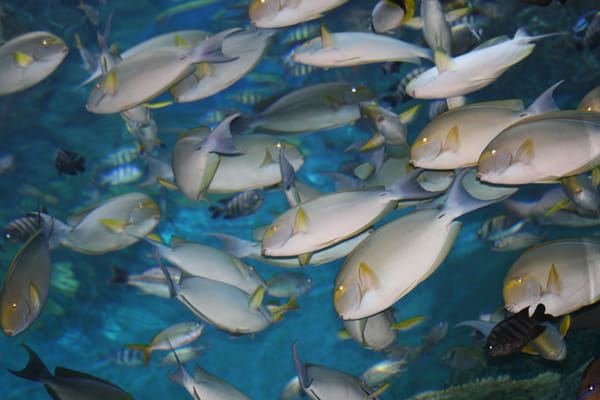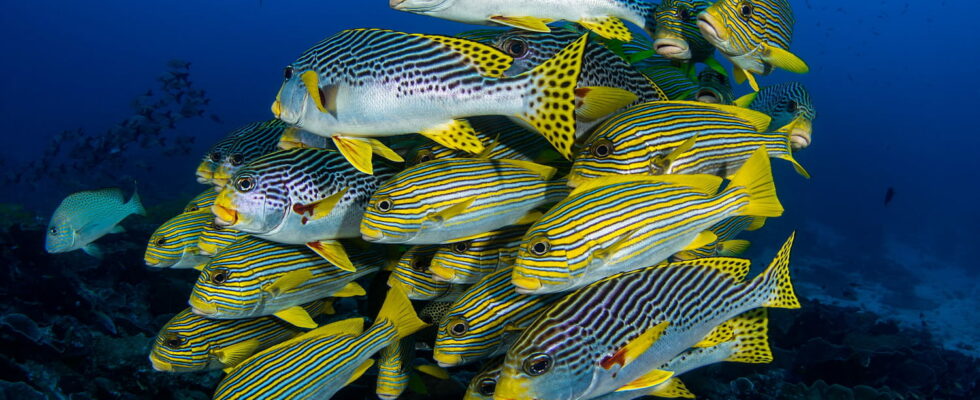An expert on underwater life exposes the consequences of a world where fish no longer exist.
70% of planet Earth is covered by ocean. If life on land teems with diverse and varied organisms, it is the same underwater. However, it is difficult to imagine the extent of underwater life from the beach or even from a boat in the open sea. The number of species living underwater is certainly impressive, but the diversity of organisms found there is equally impressive. Indeed, fish are not the only inhabitants of the seas and oceans. They share them with a multitude of plants, microbes, worms, corals, mammals and even molluscs. Fish are actually the second most important source of carbon (the material that makes up living things) in the entire animal kingdom after the group of insects and crustaceans.
Fish, and marine species in general, play a very important role in their ecosystems and participate in particular in the survival of the different species around them. Human activity, from intensive fishing to mass tourism and commerce, endangers the diversity of these marine species.

The disappearance of fish would have a major impact on the planet, well beyond underwater life. As Kory Evans, professor of natural sciences at Rice University in Houston, explains in an article for The Conversation, in ecosystems, fish play a role as both prey and predators. According to the food chain principle, small fish also represent the basis of the diet of larger species. Many species base their diet partly or exclusively on fish: if they disappear, these species would therefore be in danger. This does not only concern underwater ecosystems but also those on land. Animals such as birds or even species close to rivers such as bears or crocodiles would be threatened.
Mr Evans also explains that fish help to save habitats for other species. For example, in environments inhabited by coral reefs, fish that feed on plants help control algae that could smother the corals. In another case cited by the professor, the droppings of parrotfish, a species of the tropical marine fish family found for example in the Caribbean, which also lives near coral reefs, contribute to the development of these last and even contribute to giving their appearance to white sand beaches. Also, when searching for food in the sand, fish expose microorganisms hidden under the sand which will then feed other species. The disappearance of fish would therefore be a very great loss for the environment as a whole and would impact all spheres of terrestrial life.
